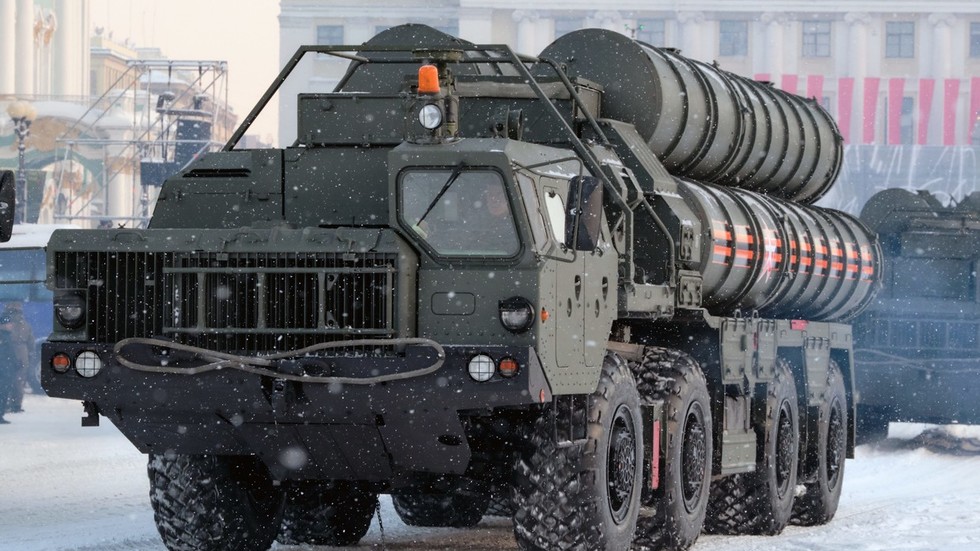By Joaquin Flores
Turkey wants both Patriot and S-400 systems in the event of a conflict with either NATO or Russia – being able to use one against the other, if need be.
Ankara will begin the process of deploying Russian S-400 anti-aircraft missile systems (ZRK) in the country in October. This was announced by Minister of National Defense of Turkey Hulusi Akar on March 8th.
“The Air Force is studying in which regions it is better to install them,” the Russian state-controlled TASS news agency quoted him as saying .
The head of the department called the acquisition of the Russian S-400 “not Turkey’s preference, but a necessary measure.” According to him, Ankara continues negotiations with Washington on the purchase of American Patriot air defense systems.
Ankara’s Official Line
Hulusi Akar’s statement reflects the official line that Ankara has taken in its negotiations with the US. The US threatened Turkey with not fulfilling the F-35 order and later even with sanctions, should Turkey carry forward with the purchase. One of the issues that are problematic for Ankara is their need for superior anti air defense systems and the lesser quality and higher cost of the U.S produced Patriot system.
Russia and Turkey signed a contract for the purchase of the S-400 in 2017. The U.S has repeatedly spoken against the deal, threatening to cut off deliveries of F-35 fighters already paid by Turkey and demanding that they make a choice between Russia and the West .
However, Turkish leader Recep Tayyip Erdogan did not abandon the Russian systems deal and urged the United States to reconsider the “hard approach” to this issue.
The US’s ultimatum is a rather weak one – the F-35 fighters that Turkey agreed to buying were part of a package deal which included the purchase of Patriots, initially. But Turkey, as well as military experts, analysts, and industry observers internationally, are in consensus that the F-35 is a significantly inferior product, with many unfixable bugs, high maintenance costs, and a low flight-hours lifespan.
Looking Forward
In March, Erdogan furthermore did not rule out the acquisition by Turkey of the Russian S-500 , which will go into service with the Russian army in the near future.
According to experts, the range of these S-500 SAM missiles is 600 km, which is about 200 km more than the S-400. In addition, the new system is able to simultaneously track and intercept up to 10 missiles, which are moving at a speed of about 6.5 km / s. Furthermore, the S-500 is touted for its ability to hit targets in near earth orbit, which would refer also to satellites.
The Patriot Problem
Turkey was not satisfied with the conditions laid out by the United States for the supply of Patriot anti-aircraft missile systems (SAM), as negotiations have now stopped. Back on February 20th of this year, the head of the defense industry of Turkey, Ismail Demir, explained the core problems.
“We asked the United States for a Patriot. The answer to this request came after a year and a half. We cannot accept the conditions and details of the US proposal in their current form,” Demir said, adding that it was necessary to clarify some issues during further negotiations.
According to him, the deliveries of the Patriot air defense system had originally been expected to start in July 2019, and in October to be put into operation. Initially Turkey bargained to receive two complexes, reported TASS at the time.
But back on February 7th 2019, it became known that Washington would refuse to sell Ankara the Patriot complexes if it makes a deal with Moscow for the supply of S-400 anti-aircraft missile systems. The United States also then for the first time expressed its willingness to additionally cancel the sale of F-35 fighter-bombers to Turkey. This became an ultimatum in the view of Ankara.
At the end of December last year, a spokesman for the Turkish president, Ibrahim Kalyn, stunned the US and said that the US proposal to purchase the Patriot air defense system would not affect the agreement between Turkey and Russia on the S-400.
The US Department of State approved a possible deal with Turkey for the sale of Patriot systems worth $ 3.5 billion in December 2018.
Ankara and Moscow signed a contract for the supply of S-400 in 2017. Washington has repeatedly opposed the agreement and threatened Turkey to cut off shipments of already paid F-35 fighters, but appears to be going forward with the Patriot system.
Why both systems?
Ankara views both several NATO countries including the U.S, as well as Russia, as potential enemies in the event of a major conflict. Weapons systems of this type are increasingly complex and computerized, not just mechanical. NATO countries and the U.S will understand more effectively how to frustrate the Patriot system, and are more familiar with its weaknesses and vulnerabilities. The same is the case for Russia in relation to its own systems.
By having both systems, Ankara hopes to be able to successfully ensure that it has full coverage from either of its future potential enemies.
Additionally, Ankara has expressed its aim to reverse-engineer both systems once in possession. This is viewed as an important step, and Ankara ultimately would want to produce its own indigenous system based upon elements of both or either.
There is always a possibility that either the United States or Russia has inserted very difficult to detect kill-switches into the systems they sell to other countries, rendering the systems useless if used against its country of origin.
Source: Fort-Russ



